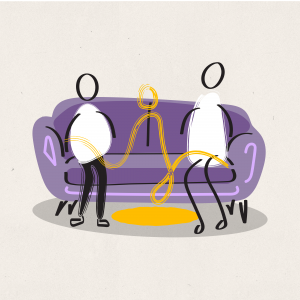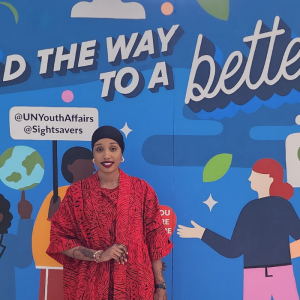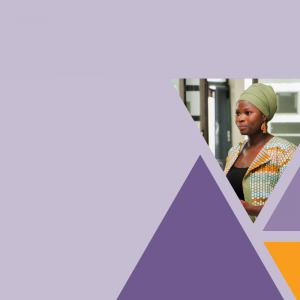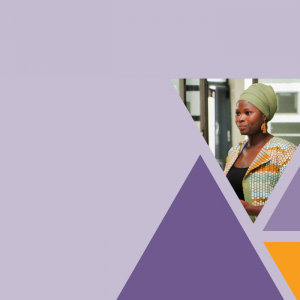Building on our work as part of the Global Platform for Action to End FGM/C, Orchid Project launched a campaign – #TakeASeatForTheSummit. Born in response to the Kigali Declaration to close the funding gap, this is not just a call to action—it’s a resounding global appeal for a change from business as usual and to address the funding crisis for end FGM/C work.
Our call to action resonated with many, sparking support from individuals and organisations passionate about closing the funding gap to end FGM/C. You embraced the symbolic act of taking a seat, creating a powerful visual representation of unity and support for a Global Commitment Summit as a mechanism for closing the funding gap.
From Rhetoric to Reality
The images shared as part of the #TakeASeatForTheSummit campaign serve as an entry point into a deeper conversation surrounding FGM/C. Beyond the symbolism lies a harsh reality—a significant funding gap that poses a substantial obstacle to eradicating FGM/C.
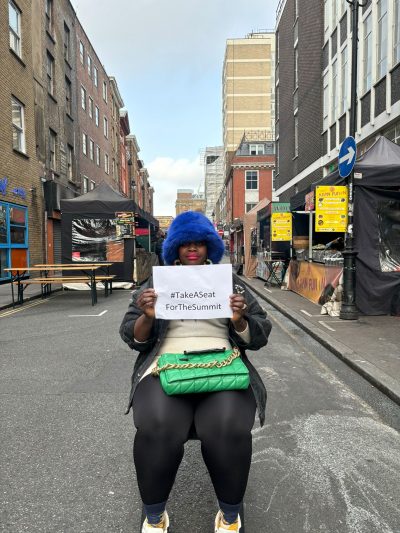 Stark statistics reveal an alarming scenario: over 4 million girls annually face the threat of FGM/C and it is a leading cause of death of girls in the countries where it is prevalent, resulting in 44,000 excess deaths each year. UNFPA’s projections underline the urgency, calling for $3.3 billion by 2030 to comprehensively address FGM/C in 31 priority countries.
Stark statistics reveal an alarming scenario: over 4 million girls annually face the threat of FGM/C and it is a leading cause of death of girls in the countries where it is prevalent, resulting in 44,000 excess deaths each year. UNFPA’s projections underline the urgency, calling for $3.3 billion by 2030 to comprehensively address FGM/C in 31 priority countries.
Yet, the current landscape exposes a glaring disparity, with just $275 million allocated for the total development assistance between 2020-2030 in these countries. For grassroots organisations and frontline workers, this translates into constrained resources for vital interventions, support services, and advocacy efforts. The repercussions are tangible, with the potential to affect the lives of countless women and girls.
A Resounding Call to Action
In the powerful words of Sarian Karim, a survivor and a Founder of the Keep The Drums, Lose The Knives, her personal journey illustrates the urgent need for collective action: “I am a mother of 5 daughters, I was CUT at age of 11, organised by my oppressed mother and grandmother. The global movement to end FGM/C has helped me find my voice to protect my girls from my ancestral knife. As a survivor and a vital global voice, I am joining the call for a Global Summit to close the funding gap to end FGM/C.”
This call echoes for many others impacted by FGM/C or working in the sector to end this practice.
The Catalytic Influence of a Global Commitment Summit
Highlighting the Summit’s importance goes beyond addressing the immediate funding gap; it involves establishing the foundation for a comprehensive, sustained action.
“This summit represents an opportunity for world leaders, activists, survivors, and stakeholders to come together and prioritise concrete actions towards ending this practice in alignment with SDG 5.3. By bringing global attention and collective commitment to the forefront, we can catalyse meaningful change, raise awareness, mobilise resources, and strengthen partnerships necessary to protect the rights and well-being of the millions of women and girls affected by FGM/C,” says Caitlin LeMay, Executive Director at End FGM/C US Network. “The time for decisive action is now, and the Global Commitment Summit provides a crucial platform to accelerate progress towards a future where every woman and girl can live free from FGM/C.”
For grassroots organisations and frontline workers, a Global Commitment Summit signifies increased resources, expanded capacity-building initiatives, and fortified collaborations. It emerges as a pivotal avenue to amplify the voices of those leading the change, providing them with the necessary tools and support to bring about tangible change. The Summit will therefore be a key defining moment to back the political commitments with financial support from all sources – from domestic funding to donor and private sector and philanthropy funding. This is the only way we can achieve elimination of FGM/C.

